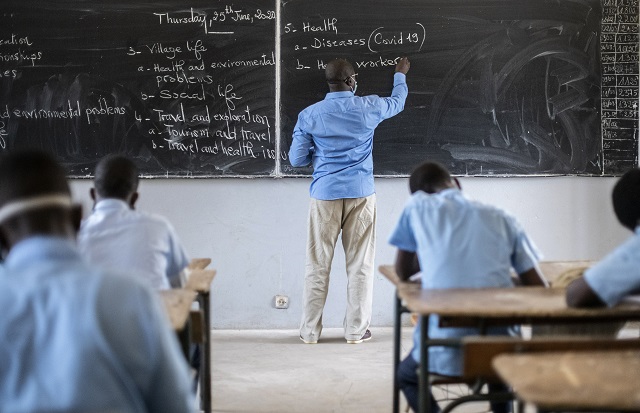
Kampala, Uganda | THE INDEPENDENT | In 1987, the new National Resistance Movement (NRM) government set up an Education Policy Review Commission led by Professor William Senteza Kajubi to review the education system as the country was recovering from the insurgency. This followed an earlier commission established in 1977 whose findings were never made public because of the civil strife in the country.
The Kajubi Commission conducted nationwide consultations and came up with 202 recommendations, which later informed the 1992 Government White Paper. At the time, educationists and policymakers saw the Government white paper as a game-changer.
However, 30 years later, both educationists and policymakers agree that most of its recommendations were never implemented. Dr Yusuf Nsubuga, the former Director of Basic and Secondary Education at the Ministry of Education describes the white paper as a “beautiful piece of art” that was never given chance.
Dr, Nsubuga, who is part of the newly appointed education policy review commission, says that the failure to fully implement the white paper is a sign of the paralysis that was in the system he served for years.
The government only implemented about 40 percent of the over 202 recommendations in the white paper. According to the ministry, most of the recommendations that were never implemented would have had a great impact in transforming the sector and producing the desired results among learners.
Dr. Nsubuga further blames the failed implementation of the white paper on the mindset of the implementers and other stakeholders who preferred doing business as usual and ignored the new changes. He cites the failure to introduce vocational occupations in schools as many disregarded it thinking it is for academic failures.
Brighton Barugahare, the Commissioner in charge of policy analysis and research at the ministry of education concurs with Dr Nsubuga noting that the white paper was meant to be the guide of every policy, curriculum, or regulation in the field of education but it was not looked at during the development of some policies.
Barugahare blames this hiccup on the fact that for a long time the education ministry had no policy experts who could translate the objectives of the white paper on a given issue before implementing it.
“There was implementation indiscipline as the officials at the education ministry failed to bring the paper into life by designing relevant policies. the ministry had to always assess the programme or project that is being fronted by the donor to ensure that it’s stationed the grad objective of government but this was rarely done,” says Barugahare.
With this failure, the policy analyst says as time went on, the education sector has been greatly influenced by education partners and donors who have been pushing several things that are contradicting the government white.
Dr Enock Barigye, the Dean of Faculty of Education, Arts and Media Studies at Bishop Stuart University, says that the white paper was a failure from the word go as the ministry of education failed to formulate better policies to implement the government position on education sector.
Dr Barigye, who is an expert in Educational Planning and Management says that instead of writing policies out of the white paper, the ministry has instead been driven to work on political statements and pledges of the ruling party.
Several people interviewed for this story have linked the slow implementation of the government white paper to a lack of financial resources because the paper was introducing many changes that needed massive investment.
Associate Professor, Jessica Norah Aguti, an Education Specialist noted that the vocationalisation of education which was central for primary and secondary education in the white paper could not be achieved without enough resources.
Aguti, who is also the director of the Institute of Open, Distance, and E-learning at Makerere University, says that the aspect required heavy investments in the infrastructure, acquisition of equipment and training of human resources.
However, Barugahare says that after the release of the white paper, officials in the ministry didn’t bother to inform the government on how best the aspirations of the white paper could be achieved using the available resources.
Aguti says that although the government had made some achievements on implementing the white paper with time, some aspects have been overtaken by time creating a need for a new education policy review commission to inquire into the effectiveness and relevance of education policies.
The educationist, however, insists moving forward, education policies, financing, and other related bottlenecks plaguing the sector should be handled with a multi-sectoral approach by ensuring that all concerned players and factors are accounted for.
The government has already established a commission led by Nuwe Amanya Mushega, a former Minister of Education and Sports to investigate and inquire into the implementation of the decisions in the government white paper to give the education sector a new direction.
The commission has invited stakeholders to submit written memoranda expressing their opinions, suggestions, and recommendations on the essential Education and Sports Sector Policy, Plans, and Legal Reforms.
Barugahare says that the review will give a fairground to an honest discussion on the 1992 white paper and whether its recommendations are still relevant to the education sector today.
*****
URN
 The Independent Uganda: You get the Truth we Pay the Price
The Independent Uganda: You get the Truth we Pay the Price


